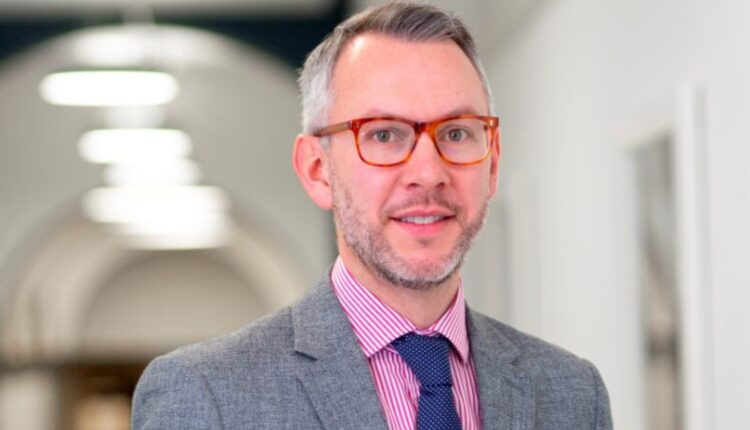‘Investors will still come to Liverpool – we have a fantastic offer’
A year after taking over the helm at Professional Liverpool, Andrew Ruffler is leading the organisation on a post-pandemic mission to bring the city together and promote its assets. Tony McDonough reports
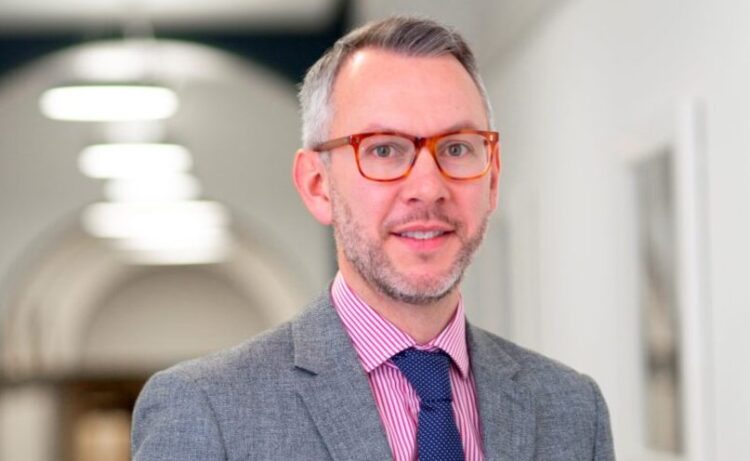
A leading figure in Liverpool’s business and professional community says he is confident the city will still attract investment despite a damning report into the city council published last week.
Andrew Ruffler, chief executive of membership organisation Professional Liverpool (PL), says the business community is right behind acting Mayor Wendy Simon and council chief executive Tony Reeves in their efforts to get the city back on track.
A report commissioned by the Secretary of State for Housing, Communities and Local Government, Robert Jenrick, revealed a “a fundamental failure of governance” in how parts of the authority had been run. He is sending in commissioners to run the highways, regeneration and property management functions of the council.
Published on Wednesday last week, the report put the national spotlight on Liverpool for the wrong reasons. However, by Friday, the city had finished the week on a high note when Mr Jenrick gave the go-ahead for Everton FC’s £500m stadium in the docklands.
“I don’t think the report into the council will have a big negative impact on inward investment,” said Mr Ruffler in an interview with LBN. “This gives the council the opportunity to get it right.
“Acting Mayor Wendy Simon, along with the chief executive Tony Reeves, have sent a strong message to investors that they are working to fix the problems. There are so many positive things happening around the city region and the business community is right behind that positive message.
“If you look at the projects going on around the city such as the Knowledge Quarter and the Everton stadium then you can see we have a lot of positive things to shout about. It is our professional community that is enabling those projects. I think the future for Liverpool is bright.”
Mr Ruffler took over the helm of Professional Liverpool from John Hall. A former law firm boss, Mr Hall had come out of retirement to run PL which was then facing an existential crisis. At that time it had a rather stuffy and conservative reputation. Mr Hall took on the task of turning PL around and growing the membership.
He turned PL into a vibrant member-led organisation and now Mr Ruffler, former regional director at the Royal Institute of British Architects North West, is looking to take it onto the next level. His mission is to reach out way beyond its traditional patch in Liverpool’s central business district to other parts of the city.
That was his pitch to the PL board a year ago. But just a short time after he took over the top job, the UK was plunged into an unprecedented lockdown as the COVID-19 virus spread rapidly around the country.
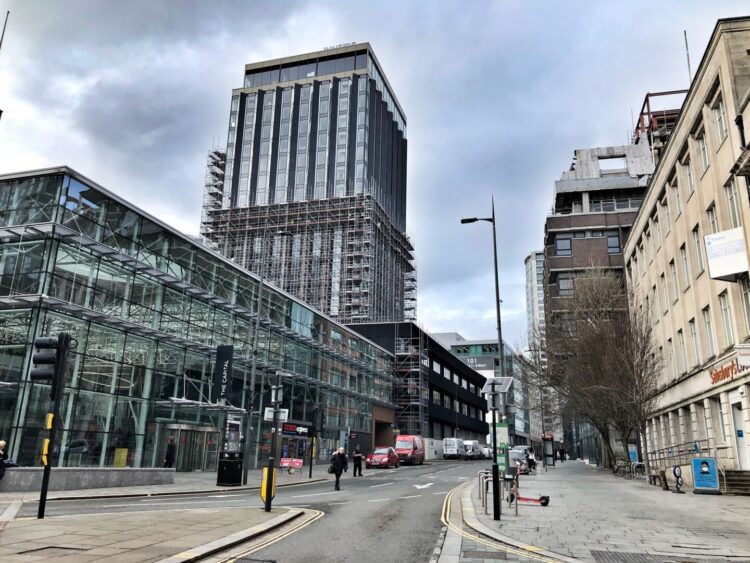
“What a time it was to be taking over,” he said. “Just a week after I started the country went into lockdown. And what has stood out for me during this unprecedented period is how the professional community has really pulled together.
“Through my previous role I knew the architectural sector really well, but the wider professional community less so. I have been overwhelmed to see how well they have come together to support each other over the past year. I think that will be a real strength going forward.
“Our members have shown real loyalty to Professional Liverpool. Despite their own battles with the situation, they have renewed their memberships. It showed me that this is not just another member organisation, it’s the glue that holds the professional sector together.”
PL has now published a strategy that will look to extend its reach across the city region over the next two years. It plans to connect with not just other businesses but also with the wider community. In January it announced a new partnership with Everton in the Community.
For decades the Dale Street/Castle Street and latterly the Old Hall Street district, were the epicentre of Liverpool’s commercial activity. But the city is rapidly evolving. In just over a decade the Baltic district has been transformed from a collection of derelict warehouses to one of the UK’s fastest-growing digital and creative hubs.
Similarly, the city £2bn Knowledge Quarter is now set to become a powerhouse and the news that the city region has secured Freeport status will give new impetus to its £4bn maritime and logistics sector.
Mr Ruffler said: “We have to reach out beyond the central business district. Physically, Liverpool is a small city but there are gaps between these different areas and sectors and I want PL to take the lead in joining the dots between them.
“In the professional services sector we also have a job to do to ensure we move forward with an equality and diversity agenda. We have to be fully representative of our diverse communities. We realised we needed to do something about the make-up of the PL board and in the past few weeks we have started to bring in new people.
“All the professional firms have a job to do around equality and diversity. As an organisation, and as a sector, we have to make sure we are forward-thinking.”
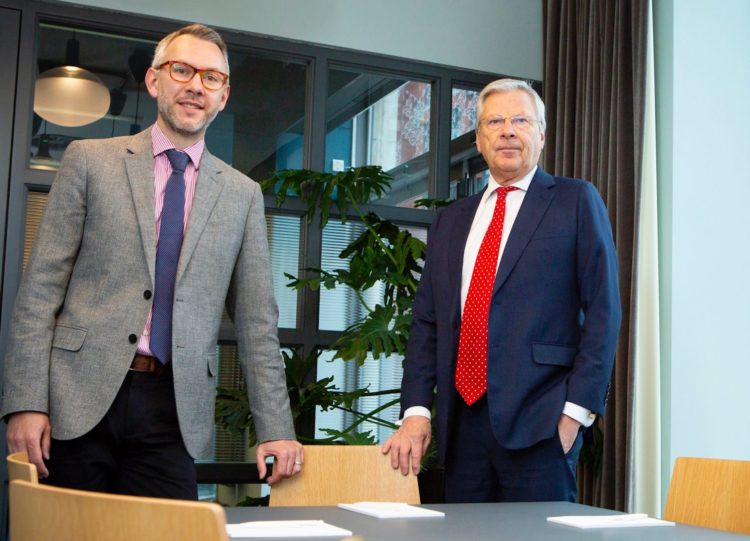
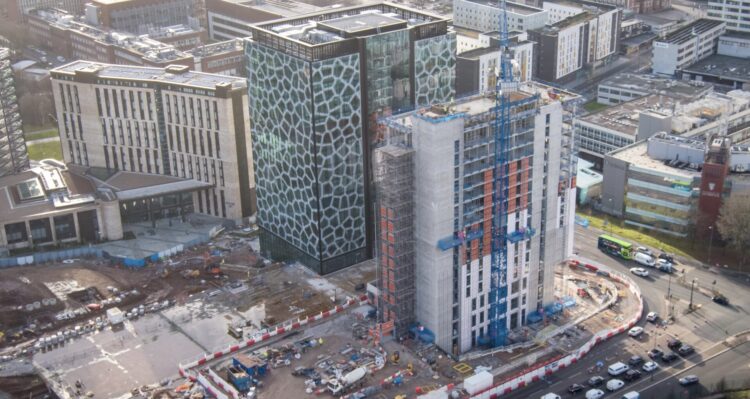
The COVID-19 pandemic presented unprecedented challenges for businesses across all sectors. Mr Ruffler said he was proud of how Liverpool’s professional firms adapted quickly to the circumstances, getting to grips with the technology that allowed people to work from home while still meeting virtually through Zoom and Teams.
However, he says he detects a real appetite among people, particularly younger people, to get back to some kind of normality and start mixing together again. He explained: “In the past 12 months I have had physical meetings no more than a handful of times. I really can’t wait to get back to immerse myself physically in the business community.
“I have taken part in online meetings with people but I think to myself ‘if I met them in the street, would I feel I had established a proper professional relationship with them?’. I think younger members of the professional community, in particular have really missed that face-to-face interaction. It is not just about work collaboration, but about the social aspect too.”
Mr Ruffler acknowledges that the days of the standard 9-5 office where everyone was stuck at their desks for the whole day may become a thing of the past for many workers. Last week, banking giant Santander said it was closing its Bootle office complex and the majority of the 1,100 staff would continue to work from home.
Despite this, Mr Ruffler believes many firms will want to return to their offices, but not in the same way as before. He added: “I think the office environment will evolve in a positive way. I think webinars are here to stay but we will also need places and spaces to come together to collaborate and have social interactions.
READ MORE: Are we ready to get back to the office
“Look at what Bruntwood is doing at locations such as The Plaza in Liverpool. They are transforming their ground floor spaces into social spaces. We saw an interesting issue raised in a webinar the other week in relations to virtual meetings.
“It was delivered by a provider of office furniture. They pointed out that if we continue to use webinars, even when we come back to the office, that creates a potential problem. If 10 people in the same office are all on a webinar, the noise levels will rise. People will still need dedicated quiet spaces in which to work.
“Webinars are here to stay because they are so easy to put together and can generate some really good content. Businesses are really going to have to think about how they structure their office environments post-pandemic.”
The Government’s road map out of the COVID-19 restrictions offers June 21 as the day when we all return to something like a normal life. And Mr Ruffler is really looking forward to bringing back PL’s popular events and networking programme.
“As good as the technology is, there is no substitute for social interaction,” he said. “With the latest roadmap we can start making tentative steps to bring back events after June. We are looking at a mix of physical events and quality webinars. But we really want to get back to bringing our members together. They enjoy that and they want it to return.”

